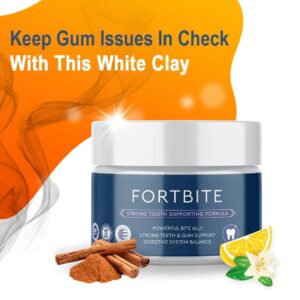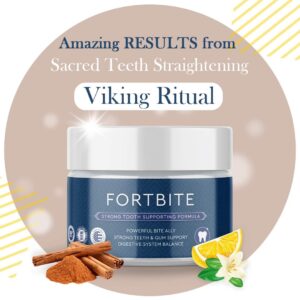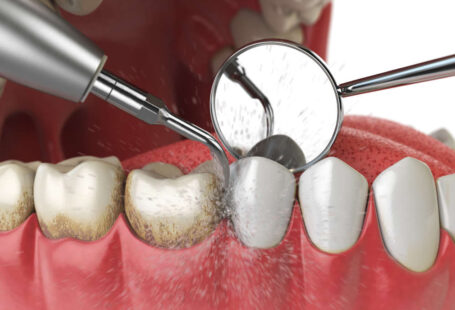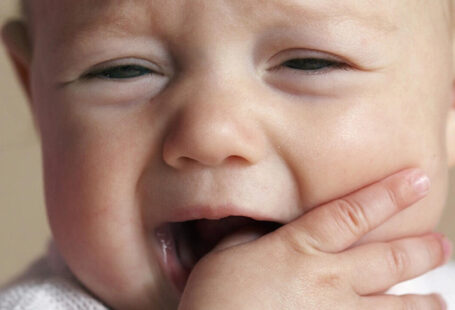What are the dental problems after 60?
As people age, they may face various dental problems that become more prevalent or require specific attention after the age of 60. These dental issues can affect oral health and overall well-being. Some common dental problems in older adults include:
- Tooth Decay: While tooth decay can affect people of all ages, older adults may be at increased risk due to factors such as dry mouth (often caused by medications), reduced saliva production, and the cumulative effects of a lifetime of dietary choices.
- Gum Disease (Periodontal Disease): Gum disease becomes more common with age and can lead to gum recession, tooth mobility, and even tooth loss. Regular dental check-ups and good oral hygiene practices are crucial for preventing and managing gum disease.
- Tooth Sensitivity: Aging can lead to thinner tooth enamel and increased tooth sensitivity. Hot or cold foods and beverages, as well as acidic foods, may cause discomfort. Using a toothpaste designed for sensitive teeth can help.
- Dry Mouth (Xerostomia): Many older adults experience dry mouth, often as a side effect of medications. Saliva helps protect teeth from decay, so reduced saliva flow can lead to an increased risk of cavities. Drinking water and using sugar-free lozenges or gum can help alleviate dry mouth symptoms.
- Oral Cancer: The risk of oral cancer increases with age. Regular dental check-ups include oral cancer screenings, which can help with early detection and treatment.
- Tooth Loss: Tooth loss is more common among older adults. Missing teeth can affect speech, eating, and overall oral health. Dentures, dental bridges, or dental implants may be options to replace missing teeth.
- Denture Problems: If you have dentures, they may become ill-fitting over time, leading to discomfort and difficulty with eating and speaking. Regular adjustments by a dentist can help maintain the fit of your dentures.
- Changes in Tooth Color: Teeth may become discolored over time due to factors like staining from food and beverages, tobacco use, and thinning of tooth enamel. Professional teeth whitening or other cosmetic procedures may be options to address tooth discoloration.
- Root Decay: Older adults are more prone to root decay, which occurs when the roots of teeth become exposed due to gum recession. This can lead to cavities on the root surfaces.
- Osteoporosis: Osteoporosis, a condition characterized by reduced bone density, can also affect the jawbone, potentially leading to tooth loss. It’s important for individuals with osteoporosis to discuss oral health concerns with their healthcare providers.
To maintain good oral health after the age of 60, it’s essential to continue regular dental check-ups, practice excellent oral hygiene, and address any dental issues promptly. Your dentist can provide guidance on managing these dental problems and maintaining a healthy smile as you age.
How often should a 60-year-old go to the dentist?
The frequency of dental visits for a 60-year-old, as well as for individuals of any age, can vary based on individual oral health needs and risk factors. However, here are some general guidelines for dental check-up frequency:
- Regular Check-ups: In most cases, it’s advisable for adults, including those who are 60 and older, to visit the dentist for a regular check-up and professional cleaning every six months. These routine visits help detect and address dental issues early and maintain good oral health.
- Individualized Treatment Plans: Some individuals may have specific oral health conditions or risk factors that necessitate more frequent visits. Your dentist will create an individualized treatment plan based on your oral health needs.
- Periodontal (Gum) Health: If you have gum disease (periodontal disease) or are at risk for it, your dentist may recommend more frequent check-ups, often every three to four months, to monitor and manage the condition effectively.
- Medical Conditions and Medications: Certain medical conditions and medications can affect oral health. If you have chronic health conditions or take medications that can impact your mouth or teeth, your dentist may recommend more frequent visits to address any resulting issues.
- Dental Restorations: Individuals with dental restorations, such as crowns, bridges, or dental implants, may need more frequent check-ups to ensure that these restorations are in good condition and functioning correctly.
- Cosmetic Procedures: If you are interested in cosmetic dental procedures or have dental prosthetics like dentures or partials, you may have more frequent visits to discuss and plan treatment options.
- Oral Cancer Screenings: Regular oral cancer screenings are crucial, especially as individuals age. These screenings are typically part of routine dental check-ups.
It’s essential to maintain open communication with your dentist about your oral health concerns and any changes you’ve noticed in your mouth. Together with your dentist, you can determine an appropriate schedule for dental check-ups and treatments tailored to your specific needs.
Regardless of your age, maintaining regular dental visits, practicing good oral hygiene at home, and addressing dental issues promptly can help you achieve and maintain good oral health throughout your life.
Is tooth extraction safe for elderly?
Tooth extraction can be safe for elderly individuals when performed by a qualified dentist or oral surgeon who takes into consideration the patient’s overall health, medications, and any underlying medical conditions. However, there are specific considerations and potential risks that need to be addressed when performing tooth extractions on elderly patients:
- Medical History: The dentist or oral surgeon should conduct a thorough review of the patient’s medical history, including any chronic medical conditions, medications, allergies, and previous surgeries. This information helps determine the overall health status of the patient and any potential contraindications for the procedure.
- Medications: It’s essential to consider all medications the patient is taking, as some medications, like anticoagulants (blood thinners) or antiplatelet drugs, can increase the risk of bleeding during and after the extraction. The healthcare team may adjust medication schedules or doses as needed.
- Coagulation Profile: Elderly individuals may have changes in their coagulation profile due to age-related factors. A blood test to assess clotting function may be necessary before extraction to ensure that the patient can form clots effectively.
- Cardiovascular Health: The dentist should evaluate the patient’s cardiovascular health, especially if the patient has a history of heart disease or hypertension. Special precautions may be needed to manage blood pressure during the procedure.
- Anesthesia: The choice of anesthesia (local or general) should be carefully considered based on the patient’s overall health and comfort. Local anesthesia is commonly used for routine extractions, but general anesthesia may be necessary for complex or multiple extractions.
- Postoperative Care: Proper postoperative care and monitoring are crucial for elderly patients. The dentist should provide clear instructions for pain management, wound care, and any necessary dietary restrictions. Patients and caregivers should be aware of potential complications and when to seek immediate medical attention.
- Infection Control: Infection prevention is essential for all patients, but it may be of greater concern for elderly individuals, as their immune systems may not be as robust. Proper infection control measures, such as sterilization of instruments and aseptic techniques, should be followed.
- Recovery and Healing: Elderly patients may take longer to recover from dental extractions due to slower healing processes. Adequate follow-up appointments are essential to monitor healing and address any issues that may arise.
- Overall Health Management: The dental team should collaborate with the patient’s primary care physician or other specialists to ensure that the tooth extraction does not adversely affect the patient’s overall health.
It’s crucial for the dental healthcare team to assess each elderly patient on an individual basis and develop a personalized treatment plan that takes into account their specific health needs and concerns. With proper care, monitoring, and precautions, tooth extraction can be safe and beneficial for improving the oral health and quality of life of elderly individuals.
How do you take care of aging teeth?
Taking care of aging teeth is essential to maintain good oral health and overall well-being as you get older. Here are some tips on how to care for aging teeth:
- Regular Dental Check-Ups: Continue to visit your dentist regularly, ideally every six months, for dental check-ups and cleanings. These visits help detect and address oral health issues early.
- Oral Hygiene: Maintain a consistent and thorough oral hygiene routine:
- Brush your teeth at least twice a day with fluoride toothpaste.
- Floss daily to remove plaque and food particles from between your teeth.
- Consider using an electric toothbrush for more effective cleaning.
- Rinse with an antimicrobial or fluoride mouthwash as recommended by your dentist.
- Dietary Choices: Eat a balanced diet that includes a variety of fruits, vegetables, lean proteins, and dairy products. Limit sugary snacks and beverages, as they can contribute to tooth decay.
- Stay Hydrated: Drink plenty of water to help maintain moisture in your mouth. Adequate hydration is essential for oral health.
- Quit Smoking: If you smoke or use tobacco products, consider quitting. Smoking is a major risk factor for gum disease, tooth loss, and oral cancer.
- Limit Alcohol Consumption: Excessive alcohol consumption can contribute to dry mouth, which can increase the risk of dental issues. Drink alcohol in moderation, if at all.
- Manage Dry Mouth: If you experience dry mouth (xerostomia), consult your dentist or healthcare provider. They can recommend solutions such as artificial saliva or medications to help alleviate dry mouth symptoms.
- Medication Review: Review your medications with your healthcare provider and dentist to identify any that may contribute to dry mouth, gum problems, or other oral health issues. Adjustments may be possible.
- Oral Cancer Screening: Regularly undergo oral cancer screenings during dental check-ups, especially if you have risk factors such as tobacco or alcohol use.
- Orthodontic Considerations: If you have issues related to the alignment of your teeth or bite, consult with an orthodontist to discuss treatment options that can improve both your oral health and overall well-being.
- Mouthguards: If you grind your teeth at night (bruxism) or play contact sports, consider using a mouthguard to protect your teeth from damage.
- Address Dental Issues Promptly: If you experience any oral health problems, such as tooth pain, sensitivity, or bleeding gums, don’t delay seeking treatment. Early intervention can prevent issues from worsening.
- Maintain Good General Health: Good overall health contributes to good oral health. Follow a healthy lifestyle, manage chronic conditions, and adhere to your healthcare provider’s recommendations.
- Orthodontic Care: If necessary, consider orthodontic treatment or consultations for issues related to bite alignment or jaw function.
Remember that oral health is an integral part of your overall well-being. By taking proactive steps to care for your aging teeth and gums, you can maintain a healthy smile and enjoy better quality of life as you age. Regular communication with your dentist and healthcare provider is key to addressing any unique concerns or issues related to your oral health.
How many teeth does a 60 year old have?
The number of teeth a 60-year-old person has can vary based on several factors, including oral hygiene, dental care, and genetics. On average, adults typically have 32 teeth, including:
- Incisors: There are 8 incisors (4 upper and 4 lower) at the front of the mouth. These are the flat, narrow teeth used for cutting food.
- Canines: There are 4 canines (2 upper and 2 lower) positioned next to the incisors. Canines have pointed edges and are used for tearing food.
- Premolars: There are 8 premolars (4 upper and 4 lower) behind the canines. Premolars have flat surfaces with small ridges and are used for crushing and grinding food.
- Molars: There are 12 molars (6 upper and 6 lower) at the back of the mouth. Molars have broader, flatter surfaces and are primarily used for grinding and crushing food.
However, it’s common for adults to have fewer teeth as they age due to various factors, such as tooth loss from decay, gum disease, or other dental issues. Tooth loss can lead to the need for dental prosthetics like dentures, dental bridges, or dental implants to replace missing teeth.
Maintaining good oral hygiene, regular dental check-ups, and timely treatment of dental issues can help preserve your natural teeth as you age. If you have concerns about the number or condition of your teeth, it’s advisable to consult with a dentist for a comprehensive evaluation and personalized dental care plan.
What percentage of people over 60 have no teeth?
The percentage of people over 60 who have no natural teeth has decreased significantly over the years, thanks to advancements in oral healthcare and preventive measures. However, the prevalence of edentulism (complete tooth loss) among older adults can still vary by region and socioeconomic factors.
As of my last knowledge update in September 2021, I can provide some general information based on historical data:
- Global and National Variations: The prevalence of edentulism can differ significantly from one country to another. Developed countries with better access to dental care and oral hygiene education tend to have lower rates of edentulism among older adults compared to some developing countries.
- Trends Over Time: Over the years, there has been a notable decline in edentulism rates among older adults, largely due to improved dental care, awareness, and preventive measures. This trend has been observed in many parts of the world.
- Socioeconomic Factors: Socioeconomic factors can influence edentulism rates. Individuals with lower income and less access to dental care may be more prone to tooth loss.
- Dental Care and Education: Regular dental check-ups, proper oral hygiene practices, and access to dental treatments can help prevent tooth loss and contribute to a healthier oral status in older age.
Please note that the prevalence of edentulism among older adults is a dynamic statistic that can change over time as healthcare systems and dental care accessibility improve. For the most current and region-specific data on edentulism rates among people over 60, it’s advisable to consult dental health organizations, government health agencies, or research studies in your specific area.
At what age do gums start receding?
Gum recession can begin at any age, but it tends to become more common as people get older. While there is no specific age at which gum recession starts for everyone, it’s essential to be aware of the potential risk factors and signs of gum recession:
- Age: Gum recession can occur gradually over time, and it becomes more prevalent as people age. By the age of 40, many individuals may notice some degree of gum recession.
- Oral Hygiene Habits: Poor oral hygiene practices, such as inadequate brushing and flossing, can contribute to gum recession. It’s essential to maintain proper oral hygiene throughout life to help prevent gum problems.
- Tobacco Use: Smoking or using other tobacco products can increase the risk of gum disease and gum recession.
- Genetics: Some people may be genetically predisposed to gum recession. If your parents or grandparents had issues with gum recession, you may be at a higher risk.
- Bruxism (Teeth Grinding): Clenching or grinding your teeth can put excessive pressure on the gums and contribute to recession.
- Orthodontic Treatment: Orthodontic treatments, such as braces, may cause minor gum recession as teeth are repositioned. However, this is usually minimal and temporary.
- Piercings: Oral piercings, such as tongue or lip piercings, can lead to gum irritation and recession if the jewelry rubs against the gums.
- Medical Conditions: Certain medical conditions, such as diabetes and autoimmune disorders, can increase the risk of gum disease, which may lead to gum recession.
- Medications: Some medications can cause dry mouth (xerostomia), which can contribute to gum problems and recession.
- Trauma: Physical trauma to the mouth, such as injuries or accidents, can damage the gums and lead to recession.
It’s important to recognize the signs of gum recession, which may include:
- Teeth appearing longer than usual.
- Exposed tooth roots.
- Sensitivity to hot or cold temperatures.
- Spaces or gaps between teeth.
- Changes in the appearance of the gumline.
If you notice any signs of gum recession or have concerns about your gum health, it’s advisable to consult with a dentist or periodontist (a specialist in gum health). Early detection and proper management can help prevent further recession and address any underlying issues. Maintaining good oral hygiene practices, regular dental check-ups, and addressing risk factors can help protect your gum health throughout your life.
Should seniors get root canals?
Whether seniors should get root canals or not depends on their individual oral health and specific dental conditions. Age alone is not a determining factor when it comes to whether a root canal is necessary; rather, the decision should be based on the patient’s overall oral health, the condition of the affected tooth, and their treatment preferences.
Here are some considerations for seniors and root canal therapy:
- Tooth Condition: The primary factor in determining whether a root canal is necessary is the condition of the affected tooth. Root canals are typically recommended when a tooth has extensive decay, infection, or damage to the pulp (the innermost part of the tooth). The goal is to save a tooth that might otherwise need to be extracted.
- Oral Health Goals: Seniors, like individuals of any age, may have different oral health goals. Some seniors may prioritize maintaining their natural teeth for as long as possible, while others may have considerations related to their overall health and comfort. A dentist can discuss treatment options and consider individual preferences.
- Overall Health: The overall health and medical history of the senior should be taken into account. Certain medical conditions and medications may affect the suitability of root canal treatment. It’s essential to discuss these factors with both a dentist and a healthcare provider.
- Quality of Life: Seniors should consider how their dental condition impacts their quality of life. A root canal may help alleviate pain, discomfort, or infection, improving overall well-being.
- Alternative Options: Depending on the situation, there may be alternative treatment options to a root canal, such as tooth extraction followed by a dental implant or a bridge. These options should be discussed with a dentist to determine the best course of action.
- Dental Prosthetics: If a senior has missing teeth due to extraction or other reasons, they may also explore dental prosthetics like dentures or partial dentures as part of their overall dental care plan.
Ultimately, the decision to undergo a root canal should be made in consultation with a dentist who can thoroughly assess the dental condition, discuss treatment options, and consider the patient’s oral health goals and overall well-being. Root canals can be a viable treatment option for seniors when preserving a natural tooth is the desired outcome and when the tooth’s condition supports this treatment.







